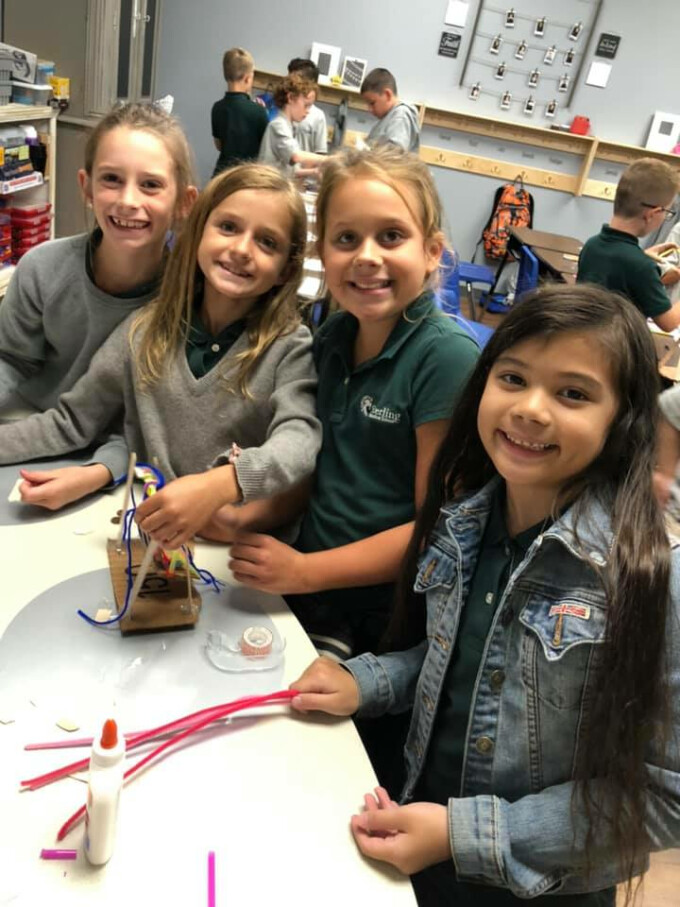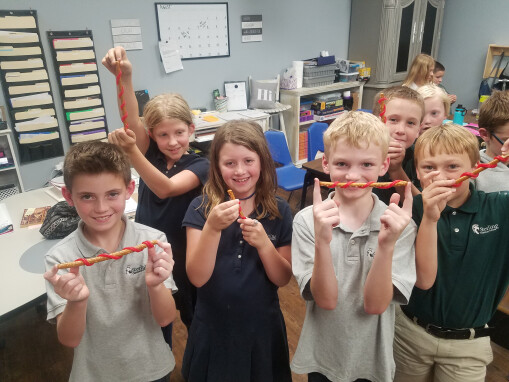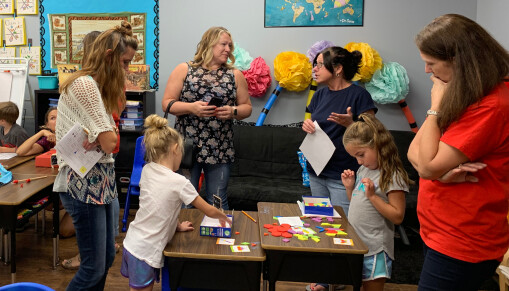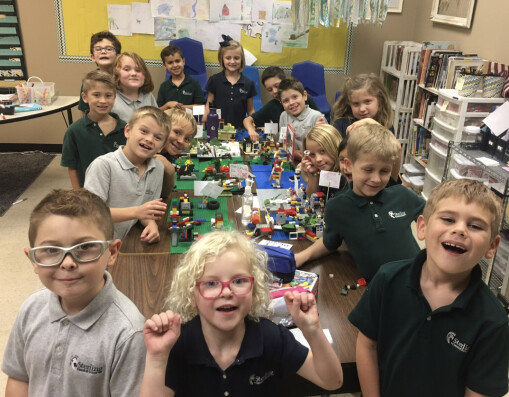A Timeless Classical Education and How It All Begins in Grammar School

One of the goals for classical education is to develop students into scholars and patriotic citizens. In the Western tradition, and before the 1900’s, our country’s leaders in philosophy, theology, and government were classically trained in the liberal arts. In today’s world, we are lacking such leadership, and thus, see the turn toward classical schooling as our hope to train wise leaders for the future.
The teaching of wise leaders begins in the grammar school, where the overarching goal is to build a foundation for future learning, which we know is a lifelong endeavor. At the grammar level, the greatest focus is on reading, because it is the source of knowledge in all other disciplines. Writing also receives great attention in grammar because the written word is the main way ideas are expressed. Instruction in writing may be taught in English class, but it is practiced in all subject areas.
In the tradition of the trivium, during the early grammar stage there is much memorization of phonograms, math facts, history dates/events/famous people, and the basic vocabulary of the sciences. This absorption of facts provides that foundation for logical analysis and critical thinking which come at the next level. By the later stages of grammar, students demonstrate mastery of this body of knowledge and begin to show readiness for the logic stage of classical schooling. Classical students learn the interconnectedness of all disciplines and viewing them in unison rather than separately.
At a grammar level, study of the fine arts provides a place for self-expression and knowledge of great artists and music in the past. Study of the virtues in a classical grammar school is greatly connected to the characters students read about in classical literature or learn about in history class. If the end goal of education is to build a mind that seeks truth, then we would be lost without the moral compass provided by learning the virtues.
Although the grammar contribution to developing wise leaders is the initial stage, we feel that it must be done right, with classical methods, developing lifetime habits that serve others well. Finally, we see the grammar school as the springboard to further learning in the liberal arts, fine arts, and character education. In a Christian school setting such as Sterling, we set our youngest students up for success with a firm foundation and faith in God as they move into the logic stage where they begin to question the “why” and “how.”




